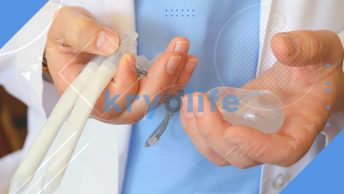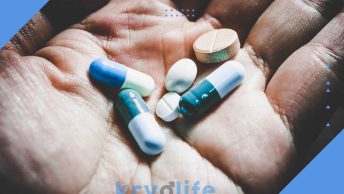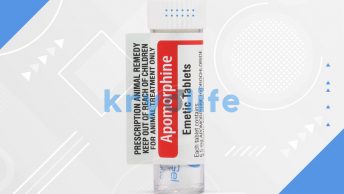Quick summary
- Prostate surgery, or prostatectomy, can cause erectile dysfunction (ED) as a side effect, with the recovery of erectile function potentially taking up to 18 months after a radical prostatectomy.
- ED after prostate surgery results from damage to the cavernous nerves responsible for sending signals to the penis for erection. Factors like surgical experience, technique, and the patient’s health before surgery affect the chances of developing ED and the speed of recovery.
- Several treatment options for ED after prostate surgery include ED medication, injections, vacuum devices, surgery, physiotherapy, and herbal erection supplements, with the latter offering a natural, side-effect-free alternative to conventional medical treatments.
Are you avoiding sexual intimacy with your partner after having got your prostate surgery done? Well, it is not your fault, as the common side effect of this surgery is erectile dysfunction. It may take some time before you can have normal sex again.
Prostatectomy or prostate surgery removes a part of or the whole prostate gland when there is a risk of prostate cancer or other prostate-related issues.
The prostate gland is located just below the urinary bladder in the male pelvis. It surrounds the urethra that carries urine from the bladder to the penis.
Often, prostatectomy is done to treat prostate cancer. A simple prostatectomy may also be suggested to treat severe urinary symptoms or enlargened prostate glands (also known as benign prostatic hyperplasia, or BPH).
After a simple prostatectomy, men will still be able to resume sexual activity and have an orgasm, but they may ejaculate little to no semen. After a radical prostatectomy, a full recovery of the erectile functions may take up to 18 months.
So, if you have recently got prostate surgery, understand why you are facing erectile dysfunction.
How does prostate surgery cause erectile dysfunction?
The walnut-sized prostate has two tiny cavernous nerves on both sides. Normally, these nerves carry signals to the penis to fill with blood and get erect.
During a radical prostatectomy, the doctor might need to remove one or both of these nerves if they are closer to the cancerous area.
Sometimes, the nerves are not removed but are damaged during the surgery. As the nerves no longer serve the purpose of sending signals to the penis to become erect, the person may get ED.
A person who has just had radical prostate surgery may have the inability to achieve or maintain an erection for satisfying sexual contact.
Doctors may perform a post-operative erectile function recovery after the surgery depending upon whether the patient had been suffering from ED issues before the prostatectomy.
Furthermore, surgical experience and technique also have a crucial role in the appearance of ED.
The chances of ED are high after radical prostatectomy as local trauma is caused to the cavernous nerves due to the traction, cutting, coagulation, and compression of the pelvic structure to get a better operative field. The probability of ED is lower in minimally invasive prostate surgery.
However, despite the surgical technique, nerve damage will always occur in varying degrees. This neuropraxia leads to changes in the erectile tissue, impairs the cavernous nerve elasticity, causing post-operative chronic penile flaccidity.
Recovery after prostate surgery
After a prostatectomy, you may experience ED for weeks, a year, or even longer. This is because of the trauma caused to the nerves responsible for erection during the surgery.
ED may take longer to recover during a radical prostatectomy compared to minimally invasive prostate surgery. If you had symptoms of ED before the surgery, they would not be resolved after the surgery.
Better techniques and approaches to prostate surgery have resulted in better outcomes for men. Men with a healthy erectile function before the surgery may heal faster after the surgery.
However, around half of the men who undergo this surgery regain their pre-surgery erectile functions within the first year post the surgery.
Men suffering from diabetes, cardiovascular disease, obesity, or those addicted to smoking or excessive alcohol consumption, may find it tougher to regain their erectile functions.
Old age is also a major factor affecting ED. The problems of ED can be combatted with a healthier lifestyle inclusive of regular exercise, a healthy diet, and low stress.
Doctors may suggest some ED medications to help you regain your erectile functions. However, these chemical drugs may have some side effects with regular use.
There are some other non-medical options too. Recovery after a prostatectomy is possible. You should talk to your doctor about the possible options. We have discussed the options in the section below.
How to restore your lost potency?
It is always better to discuss with your doctor before the surgery the possibilities of ED post-surgery and ways to treat it. Discuss the effects of chronic conditions like diabetes, cardiovascular diseases, or any other medical conditions you might be suffering from on your ED after the surgery.
There are a few medical and non-medical treatment options for ED post prostatectomy surgery. These include:
ED medication
Doctors may suggest some ED medications such as Sildenafil (Viagra) and tadalafil (Cialis) to help you regain your erectile functions. Around 75% of men who have undergone a radical prostatectomy experience a successful erection with these medications.
Injections
Injecting certain medications into the penis creates vasodilation and can help to produce and sustain an erection. However, this is not a very convenient option.
Vacuum based devices
A vacuum device called a vacuum constriction device can be used to treat ED. It works by placing a small pump over the penis that creates vacuum pressure. This process triggers an erection by causing blood to flow into the penis.
Surgery
A post-operative erectile surgery is done to treat ED in which certain devices are implanted into the penis to gain an erection. One particular type is an implant that is placed under the skin of the scrotum. When you want to have sex, you can squeeze it, which sends fluids to cylinders implanted in the penis. These fluids help the penis get erect.
Physiotherapy
Pelvic floor muscle exercises help to improve erectile function in men with ED. These exercises can help you gain urinary control and restore your ED post-surgery. However, its efficacy is highly dependent on the extent of nerve damage.
These treatments mentioned above are available for restoring your lost potency after surgery. You can choose any treatment that works best for you.
Many herbal erection supplements can help you gain your erection naturally. These are non-chemical drugs, and they have no side effects. We shall discuss them in detail in our next session.
Herbal erection supplements
Medications are the most convenient and widely-used treatments for ED. But, doctors may suggest only chemical drugs which have serious long-term side effects.
If you want to enjoy your sexual activity post-surgery without being bothered by vacuum pumps or chemical drugs, you can try our natural performance booster pills.
These products are 100% herbal, and you don’t need any doctor’s prescription to acquire them. These are made by qualified personnel in a cGMP facility and have been tried and tested.
Some of the natural performance boosters are Male Extra, Max Performer, Vigrx Plus, and Viasil, which has treated a million customers by now. These powerful natural performance-boosting supplements naturally restore your sex life.
These male enhancement pills boost sexual performance by tweaking ancillary factors like stamina, improved libido, and erection time. They can be a perfect remedy for men experiencing ED, premature ejaculation, low libido, small-sized penis, or poor sexual performance.
Nutraceutical erection pills focus on improving your hormonal metabolism balance and provide an adequate supply of vital nutrients required for a good sexual output.
Conclusion
To wrap up, erectile dysfunction risk is high after a prostate surgery because of the trauma caused to the cavernous nerves responsible for sending signals to the penis to become erect.
Around 75% of men experience ED after a prostatectomy, and it takes at the most 2 years to restore normal sexual activities. Doctors can treat ED after prostate surgery with some post-operative penile surgeries, penile vacuum devices, or chemical medications.
Chemical medications can have serious side effects in the long run. It is better to take natural performance booster pills like Virgrx Plus, Viasil, Male Extra, or Max Performer, and you can learn more about the best erection pills here.







